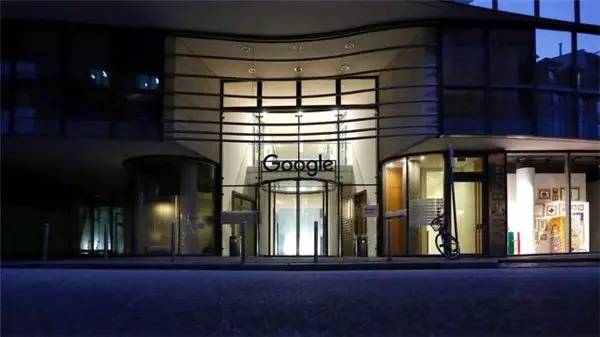Alphabet's reshuffle has been accused of not changing drugs for a year, and Google advertising remains at the heart
According to foreign media reports, "Old Google" announced on August 10, 2015 that it would restructure the company into a new parent company called Alphabet. But a year later, it is not clear what has changed for the start-up compared with the past.

Larry Page, Google's then chief executive, did not specify why the new company was named Alphabet, giving the view: "We like the name Alphabet because alphabet combinations are one of the most important innovations for humanity and the core content of our search using Google search." In addition, it implies Alphabet (i.e., a higher return on investment than the benchmark), which is what the company is aiming for. But investors have been pleased with the prospect of an old Google restructuring, as it allows it to focus on familiar businesses, making more money through web search, advertising, Chrome, YouTube and Android, and packaging businesses with short cheques, such as permanding, robotics and hot air balloon Internet access services, into a new division of "other investments".
At first, the restructuring of Old Google looked like an attempt to keep key talent like Sundar Pichai, who has been promoted to chief executive, making it easier for companies to close big mergers and acquisitions and report projects more transparently. Although Google's core business has grown steadily over the past year under Mr. Pichay, Alphabet has not acquired any of the big companies or provided detailed financial information about its subsidiaries. In fact, the "other investments" we're seeing are more like money-burning businesses, and we haven't shown which new business can outnoe can be compared to Google's advertising business in size or revenue.
Google is still growing. The subsidiary's revenue reached $21.3bn in the last quarter, up 21 per cent year-on-year - but "other investments" have shown such growth. Alphabet's other investments have accumulated losses of more than $3.7 billion in the past four quarters, but generated only about $500 million in revenue, less than 1 percent of Alphabet's quarterly revenue.
Alphabet's "other investments" include Google Ray, robotics firm Boston Dynamics, Internet of Things company Nest, Google's own investment firms Google Ventures and Google Capital, Google Labs Google X and more. Tony Fadell, Nest's chief executive, was forced to leave the company last year because of the "toxic" work environment he created. Boston Dynamics has also been put on the shelves by parent company Alphabet because the products it develops cannot be commercially available in the short term.
The New York Times noted last year that The old Google's restructuring was designed to "keep the company ahead of the curve like an innovator." Although Alphabet has only been in business for a year, it is not clear that the company's future business will not be dominated by Google's advertising business. Wall Street, of course, doesn't seem to be paying attention to Alphabet's business inse terms of business. The company's shares are now hovering near record highs, closing around $808 in after-hours trading on Wednesday.
Here are the highlights and shortcomings of Alphabet's year in the company:
Google.
Strong performance: Google's revenue rose 21% year-on-year in the last quarter, and operating margins continued to increase.
More focused: A Google executive recently explained the restructuring of old Google into Alphabet, saying past meetings were chaotic and required discussion of many foreign projects -- such as driverless cars, medical issues, Internet hot air balloons and so on. Today, Google's meetings talk only about Google's own business.
Meet Wall Street: Not so long ago, investors were complaining about Google's spending s spending. Thanks to Ruth Porat of Morgan Stanley, who orchestrated alphabet's restructuring after becoming chief financial officer, the problem has not been solved. Colin Gillis, an analyst at BGC Partners, said: "Deploying a competitive culture is key to Alphabet becoming a giant. Platt has been rewarded with stock for his work. "
Google: Alphabet's shares have risen nearly 24% since August 10 last year.
Cloud computing: Sandal has persuaded Diane Greene, a senior executive in the corporate industry, to join the company as head of the company's new cloud division. Although growth has been slow, the cloud division will become Google's second-largest business after search advertising.
Dealing with Oculus: Earlier this year, Google set up a virtual reality division to compete with Oculus, Facebook's device division, and the software behind novelty media.
Condensed hardware: Google has finally brought its different hardware businesses together into one division. Today, the company must sell its most important product: a rival to Amazon's Echo. Perhaps Google will also launch the much-anticipated Google Glass in the future. So far, Google has been tight-lipped about its hardware strategy.
Other investments:
Increased losses: Alphabet injected $859 million into the subsidiaries in the last quarter, up nearly $300 million from a year earlier.
New equity incentives: Alphabet may soon adopt a new equity incentive scheme for its non-Google employees, which has nothing to do with the rise in Google's share price.
Google Fiber breakthrough: Alphabet's high-speed Internet project Google Fiber has made some breakthroughs this year.
Nest hit the wall: It's been a tough year for Nest. The company now has a new chief executive, but its future is uncertain.
Wealth: As Alphabet's most important shareholder, founders Larry Page and Sejiblin are now richer than they were a year ago.
Go to "Discovery" - "Take a look" browse "Friends are watching"